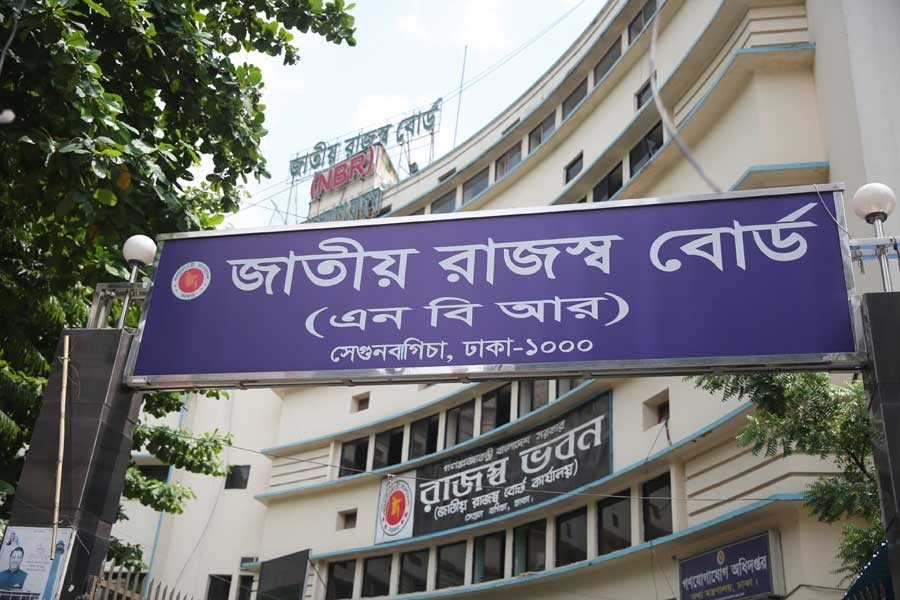The phrase 'it is better late than never', seemingly, does not apply appropriately all the time. A case in point is the late detection of partial execution of a statutory regulatory order (SRO) concerning the imposition of 15 per cent value added tax (VAT) on a number of port services. The National Board of Revenue (NBR), itself a victim of lower than prospective collection of revenue, has stirred up a hornet's nest by its belated corrective measures.
The SRO in question was issued on June 3, 2013 levying VAT on port services. The NBR reportedly defined port services as services provided in 'open or other' places where import and export activities are carried out 'in exchange for charges'. Storage of goods, direct or indirect facilities for storage of goods, security scanning and related activities in inland container depots and container freight stations are also covered by the SRO.
It is understood the Chittagong Port Authority (CPA), following the issuance of SRO, started levying VAT at the recommended rate in the case of 25 port services. Things were going like that until recently when the NBR realised that it was not getting enough revenue on account of VAT on port services.
The Board took a decision recently to clear confusion prevailing among the CPA officials about the applicability of VAT on port services. It sent a letter to the latter explaining the necessity of charging 15 per cent VAT on port-related services in accordance with the SRO in question.
The NBR's letter put the CPA in a dilemma. It did know the importance of the revenue that the NBR mobilises for the government. At the same time, it felt the need for protecting the interests of the port users, the businesses in particular.
The news about the NBR's latest move drew the attention of businesses, particularly the leading users of the port facilities, the apparel exporters. They reacted angrily, claiming that the cost of doing business is already up in recent days. They do express repeatedly their dissatisfaction at the quality of service offered by the country's premier port. Their sufferings include severe and repeated congestion at the port and inadequate handling equipment.
Now the CPA has decided to delay its decision on levying VAT in line with the NBR's request. It has sought a decision from the Ministry of Port and Shipping on the issue.
The CPA stance seems to be unjustified, for it is not its job to look after the tax-related interests of the businesses. It should rather try to improve the quality of its own services. There are other authorities with whom the businesses can negotiate better on tax matters.
In the meanwhile, the NBR has to give reply to a few questions. Why did it fail to notice the skipping of VAT payments by the CPA in relation to so many port services? Who would now compensate for the loss of revenue on account of its failure?


